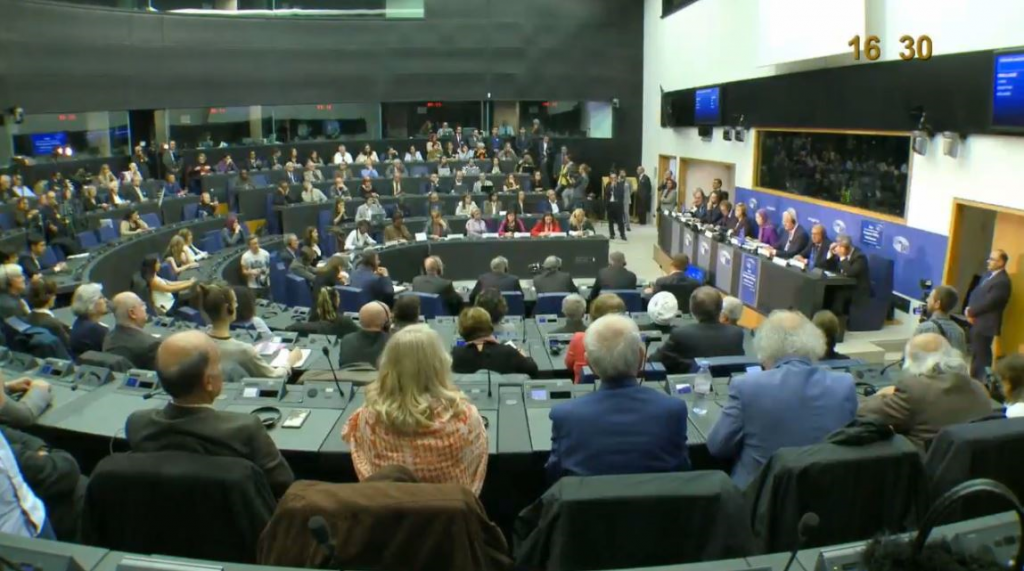
Several Members of the European Parliament attended a conference in Strasbourg On October 23, 2019, calling for a strong European approach vis-a-vis the Iranian regime’s human rights violations and warmongering policy. Anna Fotyga, MEP from Poland, chaired the conference.
Gianna Gancia, MEP from Italy, told the conference:
“The number of executions in Iran is very high, and it is very difficult for us to imagine. During the presidency of Rouhani, 4,000 people have been hanged. No country kills its own citizens in such numbers. Women are hit even harder. They have no freedom.”
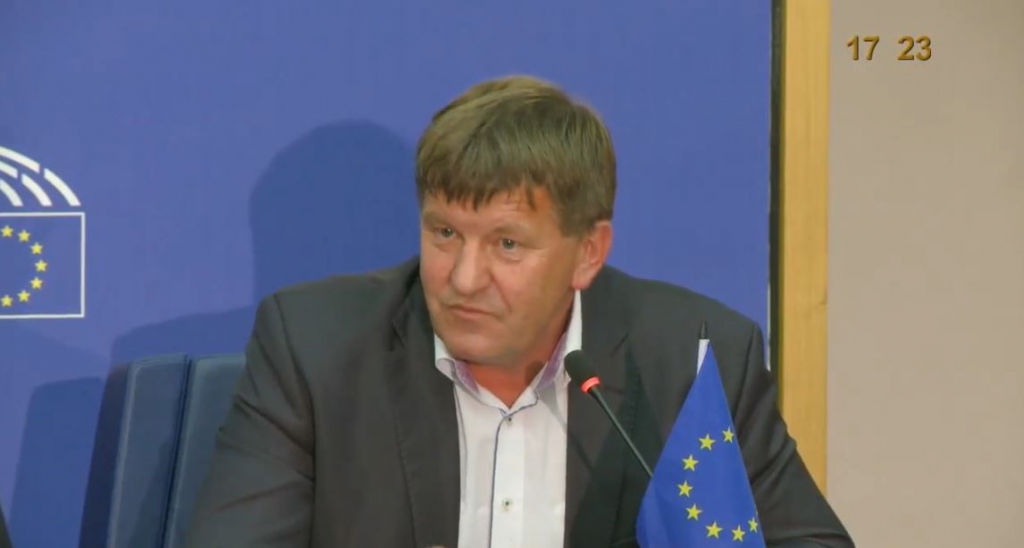
Franc Bogovič, MEP from Slovenia, told the conference:
“It is happening in Iran today, but it can also happen in Europe. We must take care of our societies and help the people in Iran. We must impose sanctions against the regime that steals money from Iran’s people, pockets it and spends it on terrorism. This is something we can do.”
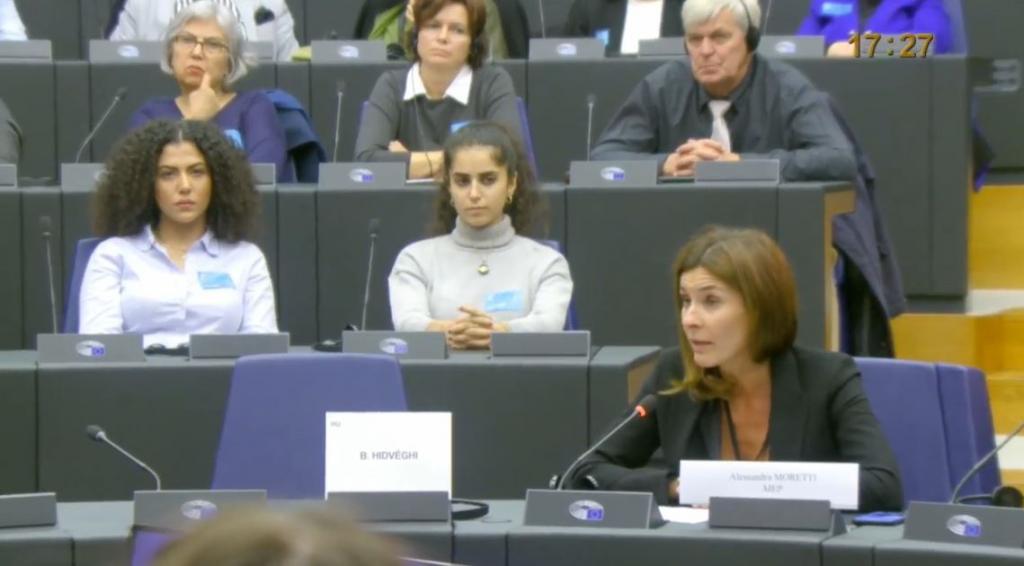
Alessandra Moretti, MEP from Italy, told the conference:
“We are here to push the European Union to base any deals with the regime on the conditions of respect for human rights and an end to executions, which does not comply with international standards and values of justice.”
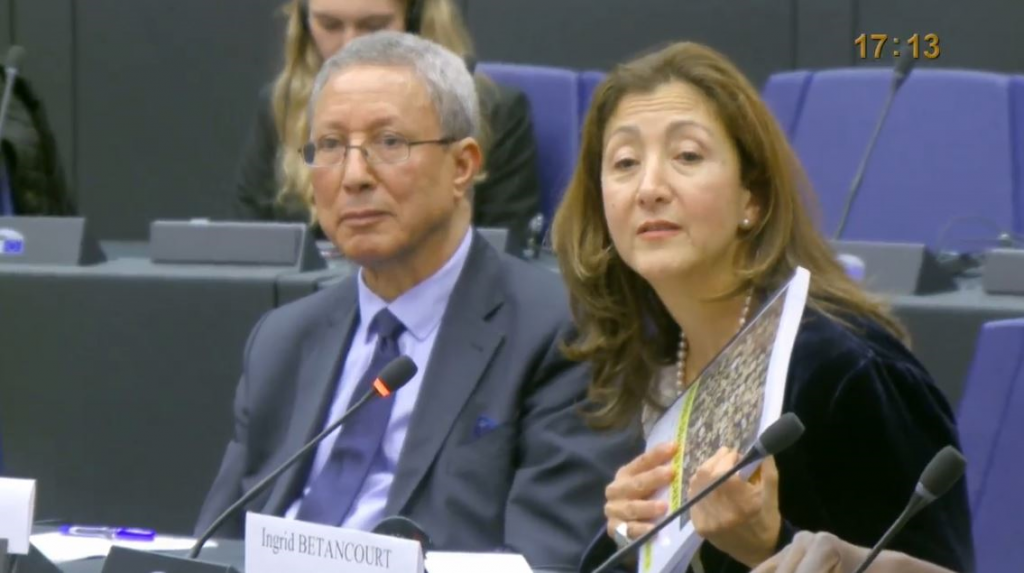
Ingrid Betancourt, former Colombian Senator, and presidential candidate told the conference:
“I have talked to the survivors of the massacre and the families of the victims. As victims, we want to forget, but we cannot have it at the price of avoiding justice. We need justice to make sure what happened to us will not be repeated. What happened in 1988 is the scene today in Iran.”
“The president of Iran, Hassan Rouhani, was part of decision-makers that perpetrated this massacre. The justice minister of Iran was one of the people responsible for making decisions to kill the victims. It was a genocide, an industry of killing.”
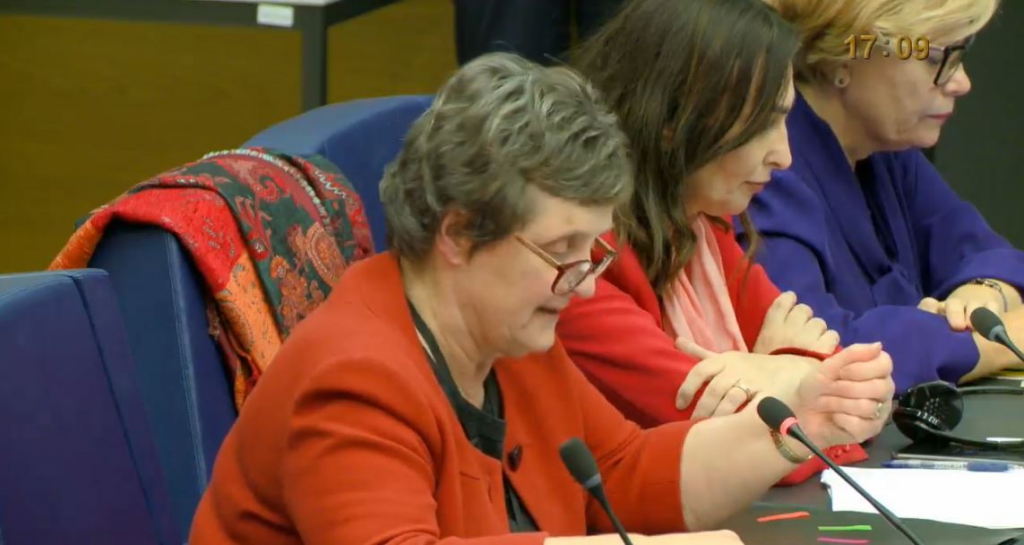
Anthea McIntyre, MEP from the United Kingdom, told the conference:
“Iranians took to the streets on several occasions. In the last uprising, the hostility to the regime was very clear, and the people called on Iranian regime Supreme Leader Ali Khamenei to go. The people do not want this regime. The EU policy must be based on this reality.”
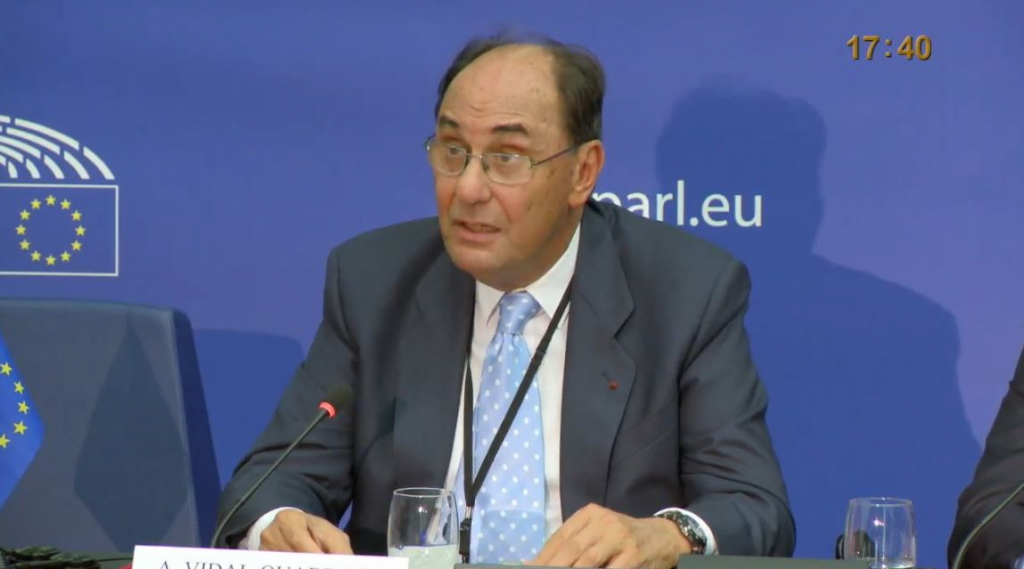
Alejo Vidal-Quadras, former Vice President of the European Parliament, told the conference:
“Today, the situation is different. More people have started to see the cruel nature of this theocracy. Maryam Rajavi said in her speech about the report by the Albanian government about the Iranian regime’s terrorist plan against opposition members in Tirana. Another plot was stopped by European authorities against the 2018 Free Iran gathering.”
“European governments need to realize the only effective policy against the Iranian regime is to deal with it for what it is: a mortal enemy that we cannot neutralize. What are we waiting for to designate the regime’s IRGC and the Ministry of Intelligence and Security (MOIS) as terrorist organizations? What are we waiting for to expel its officials and close its embassies? I hope our new foreign policy chief will answer these questions.”
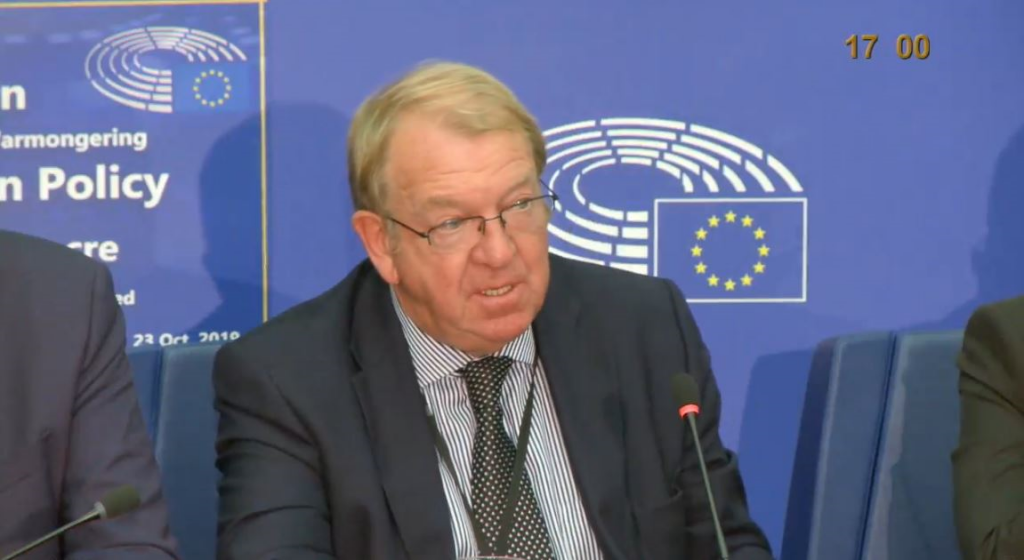
Struan Stevenson, former European lawmaker, and Coordinator of the Campaign for Iran Change (CIC) told the event:
“We need a new policy on Iran and an end to the business-as-usual appeasement. This is a regime that boasts about its missiles and that is racing to build nuclear weapons.”
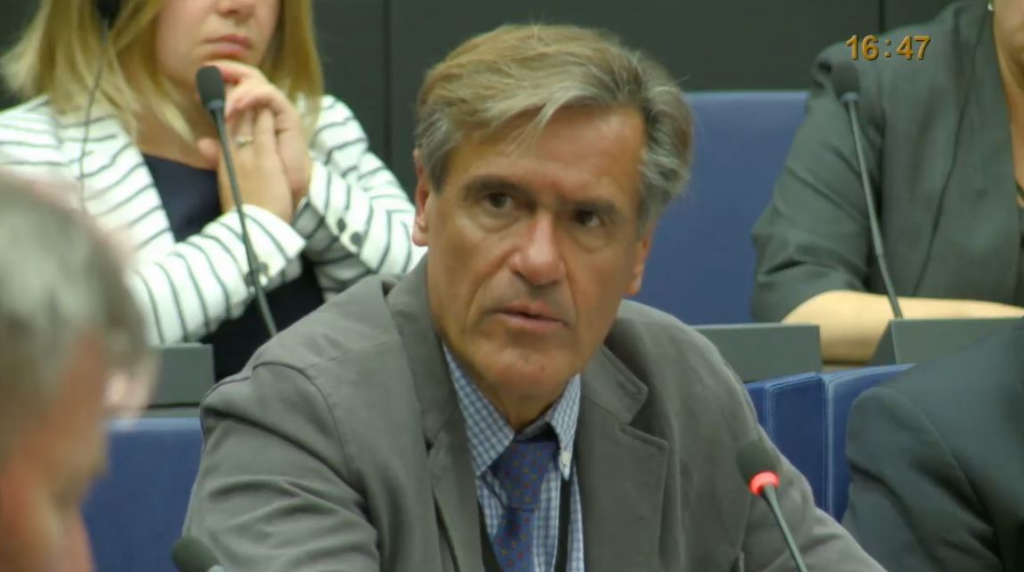
Juan Fernando Lopez Aguilar, MEP from Spain, told the conference:
“The case of suicide by an Iranian woman who entered a football stadium disguised as a man is a sad tragedy, but it is just an example of what is going on in Iran. The European Parliament should make the case for women’s rights and human rights in Iran. It is time to call on EU diplomacy to make sense to its founding values and make the case against the death penalty wherever it takes place.”
Maryam Rajavi, President-elect of the National Council of Resistance of Iran (NCRI), the event’s keynote speaker, said:
“Today, I would like to introduce an extraordinary document to the representatives of the people of Europe. A book containing the names of more than 5,000 prisoners massacred by the mullahs in Iran. The book is the story of a nation that has been suppressed in Iran, and abroad, her human rights, freedoms, and resistance have been overlooked.” She added: Western governments and the United Nations closed their eyes on this crime. Enjoying impunity for such a horrible crime, the regime spread its war to the Middle East, which is still ongoing.
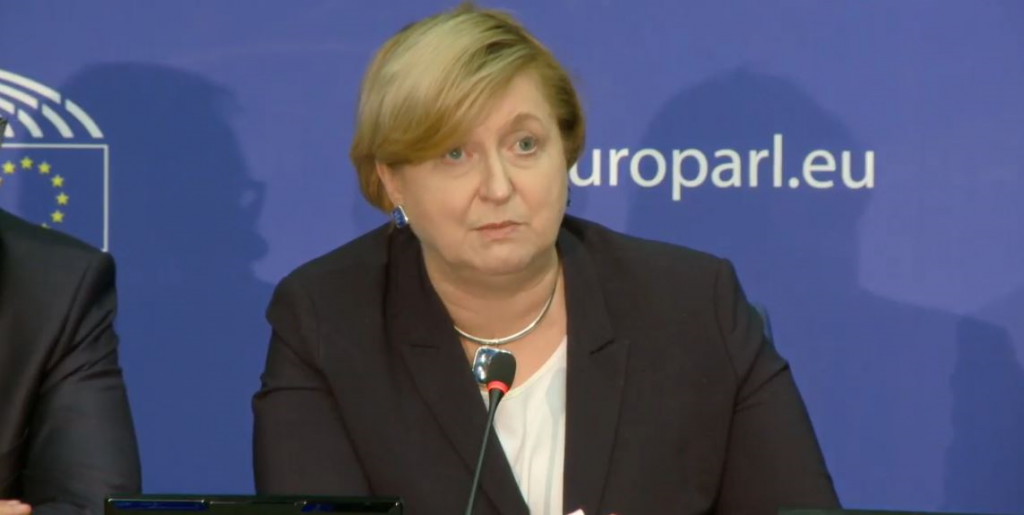
In the end, Anna Fotyga MEP from Poland welcomes panelists and guests and says it is important for the European Union to focus on human rights in its relationship with Iran.

